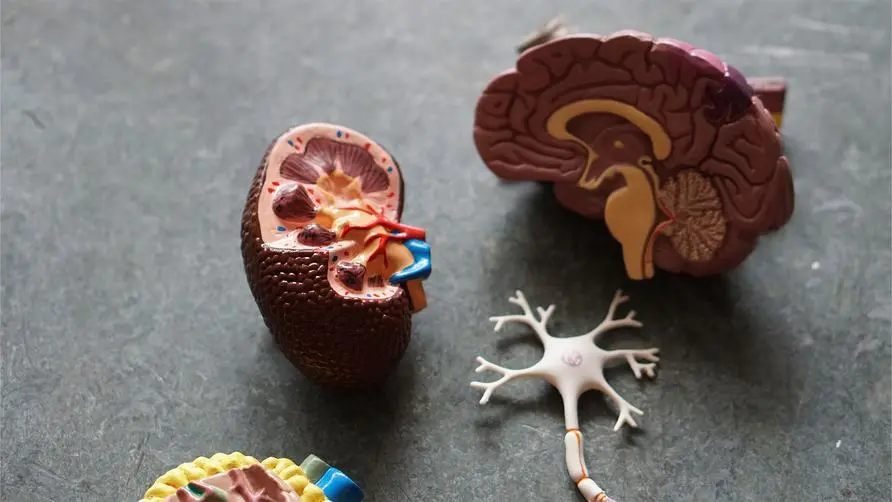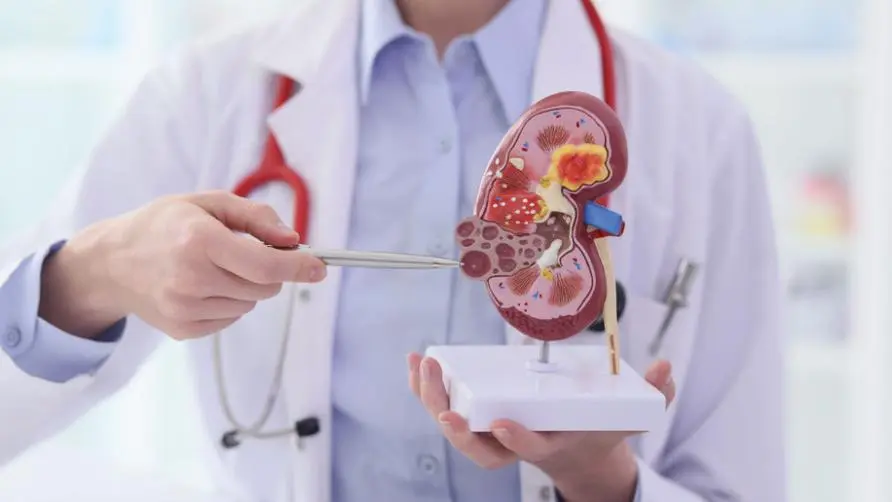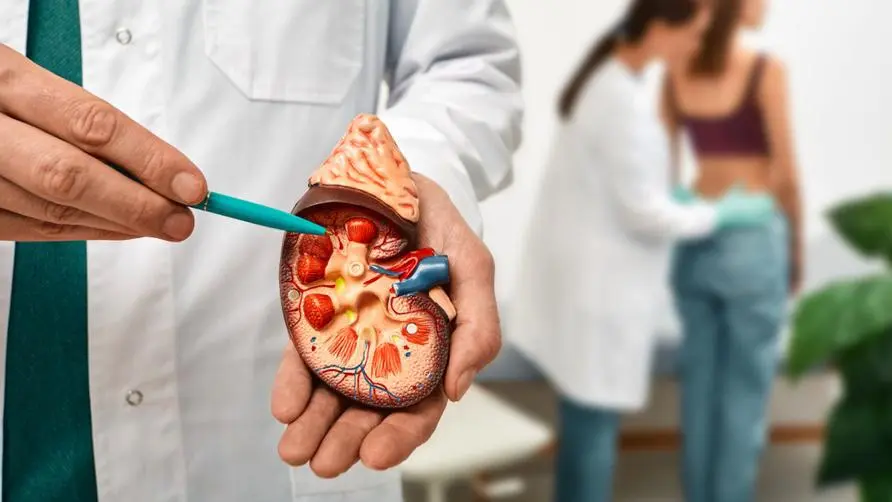Chronic kidney disease kills 5,000 people every year. High renal pressure may cause "holes" in the kidneys. 7 characteristics to pay attention to

Chronic kidney disease kills 5,000 people every year. Excessive waist circumference and obesity. Beware of “kidney” difficulties.
Kidney disease ranks ninth among the top ten causes of death in Taiwan. More than 90,000 people in Taiwan receive dialysis treatment every year. Taiwan is known as a “dialysis country”. The prevention and treatment of chronic kidney disease urgently requires advanced deployment. Director of the National Health Service Wu Zhaojun pointed out that in response to the “World Kidney Disease Day” in the second week of March, the public is reminded to pay attention to kidney disease-related factors, especially the control of three highs, smoking cessation, exercise and health awareness improvement are indispensable. What is more important is to receive regular health check-ups, blood tests, urine tests and early treatment to avoid the occurrence of chronic kidney disease.
Li Huilan, Section Chief of the Chronic Disease Prevention and Treatment Group of the National Health Service, pointed out that kidney disease causes about 5,100 deaths in Taiwan every year. According to 2020 statistics, nearly 20% of the test data of 1.95 million healthy adults over 40 years old have abnormal kidney function.
Lifestyle characteristics that are prone to renal dysfunction include excessive waist circumference, obesity, high blood pressure, blood sugar, and high blood lipids. Taiwan Health Promotion Administration further analyzed the prevalence of kidney disease in people over 19 years old and found that those with high blood pressure were 3.8 times higher than those without high blood pressure, those with high blood sugar were 2.6 times higher, and those with high blood lipids were 4.6 times higher. It is shown that three highs are closely related to chronic kidney disease.
In addition to the three highs, we should also pay attention to the fourth high, “renal hypertension”, which can cause kidney damage
Dr. Huang Shangzhi, chairman of the Taiwan Renal Medicine Society, said that about 1 in 10 adults in Taiwan meets the diagnostic criteria for chronic kidney disease, and the risk increases with age, up to 40%. Obviously, regardless of whether they are dialysis patients or not, the proportion of Taiwanese people with underlying kidney disease factors is very high. The public is highly alert to the three highs, but they do not know that they need to pay attention to the fourth high, “high renal pressure.” Poor control of blood pressure, blood sugar, and blood lipids may increase the burden on the metabolic function of the kidneys, leading to high renal pressure.
“The kidneys are like the sewage treatment plant of the body. Once the sewage flowing in is excessive and contains too much waste, it will cause the sewage treatment plant to malfunction, that is, “high renal pressure” will occur!” Dr. Huang Shangzhi explained that the kidneys The blood is filtered to remove metabolic waste from the body. When the blood passes through, the pressure in the blood vessels of the kidneys increases, forming renal pressure (intraglomerular pressure).
Since the kidneys have to handle a large amount of blood flow every day, they cannot withstand the excessive pressure on the kidneys. When the body is in a state of high blood pressure for a long time, the kidneys cannot effectively filter waste products in the body, leading to increased kidney pressure. Similarly, if the body is in a state of high blood sugar, it can easily lead to glomerulosclerosis or nephron destruction, causing kidney damage.
Dr. Huang Shangzhi said that in order to prevent and treat chronic kidney disease, Taiwan has held “Taiwan Kidney Day” since 2005. Now it is necessary to expand the prevention and treatment groups from those who are about to enter end-stage kidney disease to those who are likely to develop chronic kidney disease. To this end, industry, government, and academia have jointly launched the “2025 Taiwan Kidney Plan” in order to enhance public health awareness and achieve the three goals of regular screening, early interventional care, and wide expansion of care capacity. Primary care institutions for kidney disease have also begun 5 companies increased to 227.
96% of chronic kidney patients don’t know their condition. Doctors name 7 high-risk groups
Dr. Wu Maisi, chairman of the Kidney Prevention and Treatment Foundation, pointed out that as society enters an aging society, the importance of kidney disease prevention becomes even more prominent. Judging from kidney disease data in Taiwan, 96% of kidney patients do not know they have kidney problems. Many patients with high blood pressure and diabetes still think that their kidneys are in good health. However, early-stage kidney disease has no obvious symptoms, and “high renal blood pressure” is more difficult to detect on your own. When the renal glomerulus continues to be damaged by high renal pressure, chronic kidney disease may occur silently.
Dr. Wu Maisi emphasized that the kidneys are important organs of the body and are responsible for excreting waste, secreting hormones, maintaining electrolyte balance, and regulating blood pressure. The kidneys play the role of the “Environmental Protection Bureau” in the body. Once kidney function is damaged, the body will easily accumulate more waste and toxins. As the glomerular filtration bulb descends, kidney health will progressively deteriorate.
Therefore, as long as you have high risk factors, including diabetes, high blood pressure, age, gout, long-term medication abuse, a family history of kidney disease, and obesity, you must have regular blood and urine tests to understand your glomerular filtration rate and whether you have protein. Urine condition. When chronic kidney disease is confirmed, treatment should be received as early as possible during the golden period to have a chance to reverse abnormal kidney function and regain the “kidney-beneficial life”.
Hyperglycemia is closely related to kidney dialysis. People with diabetes and kidney disease are prone to “sadness”
Hyperglycemia is one of the main risk factors for chronic kidney disease. Dr. Huang Jianning, chairman of the Diabetes Association of the Taiwan, pointed out that about 30% of diabetic patients will have chronic kidney disease, and 45% to 48% of kidney dialysis patients have high blood sugar or diabetes problems. .
Excessive blood sugar will cause glomerular hypertension, causing the glomerular filtration rate to falsely increase over a period of time. Later, as the glomerular structure of the kidneys becomes damaged and “holes” occur, the patient will develop proteinuria, and will face dialysis when severe kidney disease develops. In addition, insulin deficiency or insulin resistance can also cause kidney damage. When urinary disease is combined with kidney disease, it is a high risk factor for heart failure. People with diabetes must be vigilant.
Dr. Huang Jianning reminded that the key for people with diabetes to prevent kidney disease is to control fasting blood sugar, postprandial blood sugar and glycated hematin within standards. And regularly detect renal filaments and urine protein, be sure to pay attention to heart health and prevent heart failure.
Save your own kidneys by yourself. Follow the eight golden rules of kidney care.
The National Health Department reminds that the eight golden rules for preventing kidney disease are: control the three highs, eat healthy, exercise regularly, control weight, avoid drugs of unknown origin, drink water, quit smoking, and have regular health check-ups. The medical community also made a key appeal in response to World Kidney Disease Day: The Taiwan Hypertension Society reminds that patients with hypertension should regularly record blood pressure and track kidney function in order to clearly understand their health status.
The Taiwan Geriatrics Society reminds the public of the importance of following medical advice and regular return visits. The Taiwan Family Medicine Medical Association promotes that people can help promote health through daily regular exercise. The Taiwan Medical Clinics Association calls on grassroots clinics to join the kidney disease health promotion organization certification to jointly strengthen the kidney care capabilities of Taiwanese people.
Further reading:





